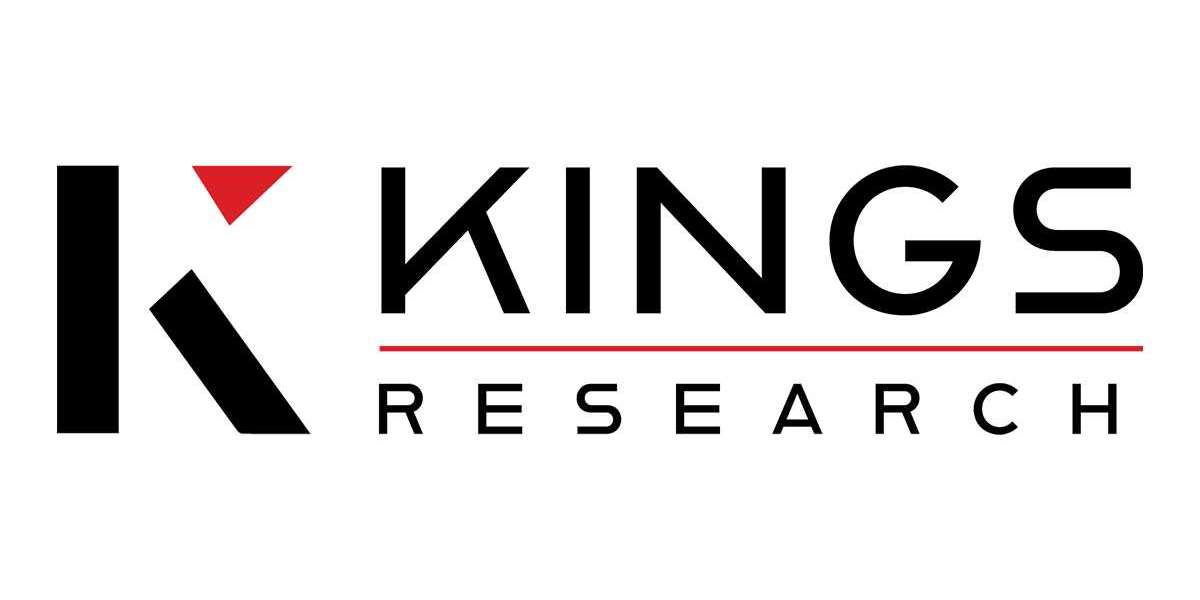One of the most sought-after technologies today is Node.js. This open-source, cross-platform JavaScript runtime environment allows developers to build scalable and high-performance applications, from web servers to APIs and real-time applications. As businesses and startups increasingly adopt Node.js for its efficiency and flexibility, the demand for skilled Node.js developers has skyrocketed.
If you're looking to hire Node.js developers, whether for building a new product or adding to your existing development team, there are several factors you should consider. Node.js offers great power, but to harness its full potential, your team must have the right skills and experience. In this article, we’ll explore the essential skills and experience to look for when hiring Node.js developers, along with tips for finding the best talent for your team.
1. Strong Knowledge of JavaScript
The foundation of Node.js is JavaScript, so the first and most essential skill to look for when hiring Node.js developers is a deep understanding of JavaScript. A Node.js developer must be able to write clean, efficient, and well-structured JavaScript code. The developer should be proficient in both client-side and server-side JavaScript, as Node.js is often used for backend development, while JavaScript is also required for frontend scripting.
Look for developers who are familiar with JavaScript ES6 and later versions. Key ES6 features, such as arrow functions, template literals, destructuring assignments, and modules, are widely used in modern Node.js development. A strong grasp of asynchronous programming is also important, as it forms the backbone of Node.js’s non-blocking architecture.
Key Areas to Focus On:
- Knowledge of JavaScript (ES6/ES7)
- Understanding of asynchronous programming (Promises, async/await)
- Familiarity with the event loop mechanism in Node.js
- Proficiency in JavaScript frameworks and libraries, such as Express.js
2. Experience with Node.js Core Modules
Node.js comes with a range of core modules that make it a powerful runtime environment. Developers should be familiar with the essential modules and know when and how to use them effectively. Some core modules you should look for include:
- HTTP module: For creating HTTP servers and clients.
- File System (fs) module: For reading and writing files.
- Path module: For handling and transforming file paths.
- Event module: For handling events.
- Stream module: For working with streaming data.
- Buffer module: For handling raw binary data.
In addition to these modules, Node.js developers should be familiar with NPM (Node Package Manager), which is used to manage dependencies in Node.js applications. A strong understanding of how to integrate third-party packages into a project and manage them via package.json is crucial.
Key Areas to Focus On:
- Knowledge of core Node.js modules and their applications
- Familiarity with NPM and its ecosystem
- Experience in optimizing performance with appropriate modules
3. Familiarity with Node.js Frameworks and Libraries
While Node.js itself is powerful, using frameworks and libraries can greatly speed up development and ensure best practices. One of the most popular frameworks is Express.js, which simplifies routing and middleware handling in web applications. Other frameworks and libraries include:
- Koa.js: A more minimal and flexible framework designed by the same team behind Express.
- NestJS: A progressive Node.js framework that uses TypeScript by default and is often used for building enterprise-grade applications.
- Socket.io: A library used for building real-time, bidirectional communication between web clients and servers.
If you’re hiring Node.js developers to build a particular type of application, look for those who are experienced with the relevant frameworks or libraries. For example, for real-time applications, experience with Socket.io is a must.
Key Areas to Focus On:
- Experience with Express.js, Koa.js, or other web frameworks
- Familiarity with real-time communication libraries like Socket.io
- Knowledge of testing frameworks, such as Mocha or Jest
4. Understanding of Asynchronous Programming and Event-Driven Architecture
Node.js uses a non-blocking, event-driven model, which is one of its key strengths. This means that Node.js can handle multiple operations simultaneously without blocking the execution of other code. Asynchronous programming is central to Node.js’s performance.
When hiring Node.js developers, look for those who understand the principles of asynchronous programming, including callbacks, promises, and async/await. These patterns allow developers to manage I/O operations (like reading files or interacting with databases) without slowing down the application.
Node.js applications often involve handling numerous concurrent requests, so developers should also have experience with event-driven architecture, where events trigger actions or responses in the system.
Key Areas to Focus On:
- Understanding of the Node.js event loop and callback mechanisms
- Familiarity with Promises and async/await patterns
- Experience with asynchronous data handling and real-time applications
5. Experience with Databases
A solid understanding of databases is crucial for a Node.js developer, as many applications will require interaction with databases to store and retrieve data. Depending on the nature of your application, you may need a developer who is proficient in different types of databases.
- SQL databases (e.g., MySQL, PostgreSQL): Ideal for applications requiring structured data storage and complex queries.
- NoSQL databases (e.g., MongoDB, CouchDB): Preferred for applications with large volumes of unstructured data or applications requiring scalability.
Node.js works well with both types of databases, but it’s important to hire a developer who is proficient with the database technology your project requires. Experience in using ORM (Object-Relational Mapping) libraries like Sequelize for SQL databases or Mongoose for MongoDB can be a bonus.
Key Areas to Focus On:
- Experience with SQL (MySQL, PostgreSQL) or NoSQL (MongoDB) databases
- Familiarity with database integration and management in Node.js
- Understanding of data modeling and optimization techniques
6. Knowledge of RESTful API Development and Integration
In today’s digital world, most applications communicate with each other through APIs (Application Programming Interfaces). Node.js is a popular choice for building RESTful APIs, which allow different systems to exchange data in a stateless manner.
When hiring Node.js developers, ensure they have experience building and integrating RESTful APIs. A Node.js developer should be able to create secure, scalable, and efficient APIs, handle HTTP requests, manage API versioning, and ensure proper error handling and response formatting.
In addition, knowledge of API documentation tools like Swagger or Postman can be valuable for ensuring that your API is well-documented and easy to test.
Key Areas to Focus On:
- Experience in designing and developing RESTful APIs
- Knowledge of API security (OAuth, JWT)
- Familiarity with tools for API documentation (Swagger, Postman)
7. Strong Debugging and Problem-Solving Skills
Node.js developers often need to troubleshoot and resolve performance bottlenecks, memory leaks, and other issues that can arise during development. Strong debugging skills are essential for diagnosing problems quickly and ensuring the application runs smoothly.
Look for developers who are proficient with debugging tools like Chrome DevTools, Node.js built-in debugger, or Visual Studio Code. They should also be familiar with logging libraries like Winston or Morgan for tracking and analyzing logs during development.
Key Areas to Focus On:
- Proficiency in debugging Node.js applications
- Familiarity with performance monitoring tools (e.g., New Relic)
- Experience in optimizing code for performance
8. Version Control and Collaboration Skills
Software development is rarely a solitary endeavor. When hiring Node.js developers, it’s crucial to look for individuals who are comfortable with version control systems, especially Git. Git allows developers to track changes to the codebase, collaborate with others, and revert to previous versions when necessary.
In addition to version control, developers should be experienced in working with collaborative development tools like GitHub, GitLab, or Bitbucket. These platforms enable efficient collaboration, code review, and issue tracking.
Key Areas to Focus On:
- Proficiency with Git and version control systems
- Familiarity with GitHub, GitLab, or similar platforms
- Ability to work in agile environments and participate in code reviews
9. Security Best Practices
Node.js applications, like all web applications, must be secure from potential threats. A developer should be well-versed in best practices for securing Node.js applications, such as input validation, encryption, authentication, and authorization. Familiarity with tools like Helmet.js (for securing HTTP headers) and Passport.js (for authentication) can be a big plus.
Key Areas to Focus On:
- Knowledge of Node.js security best practices
- Experience with encryption and secure authentication methods
- Familiarity with common vulnerabilities (e.g., SQL injection, XSS)
10. Experience with Cloud Services and Deployment
As more applications move to the cloud, it’s important for Node.js developers to have experience with cloud platforms like AWS (Amazon Web Services), Google Cloud Platform (GCP), and Microsoft Azure. Familiarity with cloud-based deployment tools and containerization technologies, such as Docker and Kubernetes, is also valuable for ensuring scalable and efficient deployment of your Node.js applications.
Key Areas to Focus On:
- Experience with cloud platforms (AWS, GCP, Azure)
- Knowledge of containerization tools like Docker and Kubernetes
- Familiarity with CI/CD (Continuous Integration/Continuous Deployment) pipelines
Conclusion
Hiring the right Node.js developer is critical to the success of your project. By focusing on the essential skills and experience outlined in this article, you can find a developer who will not only meet your technical requirements but also contribute to the long-term growth and scalability of your application. Whether you're looking to build a simple web application, a real-time service, or a complex API, hiring Node.js developers with the right skills and experience is key to achieving your goals.
When evaluating candidates, always look for a solid understanding of JavaScript, experience with Node.js core modules and frameworks, and a track record of building scalable and secure applications. By hiring the right talent, you can ensure that your Node.js projects are built to last and perform at their best.
If you're ready to hire node js developers who can meet your unique business needs, consider partnering with a development agency or platform that specializes in Node.js development. This can help you find top-tier developers and ensure your project’s success.







